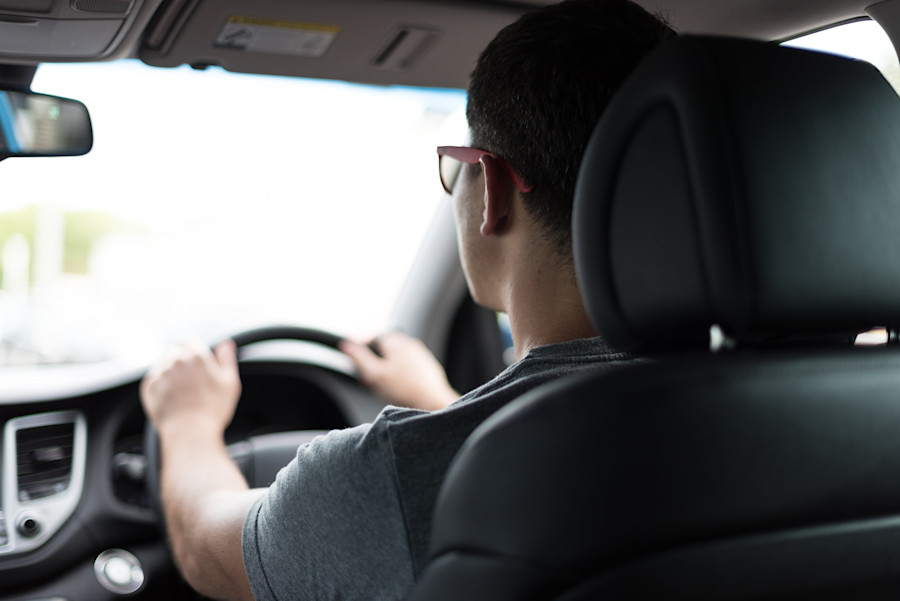In a recent decision, the Supreme Court of the United Kingdom unanimously dismissed an appeal brought by Uber against earlier rulings.1 The Court determined that Uber drivers are "workers" for the purposes of relevant employment legislation and are entitled to, among other things, be paid at least the minimum wage, and to receive annual paid leave and rest breaks.
The UK decision has led to increased debate in Australia about the status of so-called "gig workers", including some calls for legislation to be implemented to directly protect the rights and interests of rideshare drivers and food delivery riders.
Just this week, Australian food delivery business, Menulog, announced it will trial an employment model for its couriers, who were historically treated as contractors. Further change in this space is no doubt on the horizon.
Workers
Under section 230(3) of the Employment Rights Act 1996 (UK), a "worker" is defined as an individual who has entered into or works under a contract of employment or any other contract "whereby the individual undertakes to do or perform personally any work or services for another party to the contract whose status is not by virtue of the contract that of a client or customer of any profession or business undertaking carried on by the individual".
A "worker" therefore sits between an "employee" and an "independent contractor".
Workers generally perform work under a contract for someone who is not a client or customer, with descriptions such as "casual", "freelance", "as required" or similar. Workers can often choose their own hours, as businesses do not have to offer them work and they do not have to accept work when offered.
While all employees are workers, not all workers are employees. Employees have extra employment rights and responsibilities.
Australian employment law currently does not have a similar classification for "worker".
The UK Uber decision
In 2016, two former Uber drivers brought claims to the Employment Tribunal seeking payment of holiday pay and underpaid wages from Uber, as a test case to establish their employment status.
The Employment Tribunal determined that the drivers were "workers", finding they were employed by Uber and that they were regarded as "working" during any period when they were logged in to the Uber app and ready to accept trips.2
In the UK, "worker" is a distinct classification, which differs from that of a contractor or an employee. It is not a classification that exists in Australia. The decision was upheld on appeal to the Employment Appeal Tribunal in 2017,3 and in 2018 on further appeal to the Court of Appeal.4
Uber then appealed to the UK's highest court, which unanimously dismissed the appeal.
In reaching its decision, the Supreme Court considered the purpose of the employment legislation and formed the view that the inclusion of a further category of individuals who are not employees (i.e. the "worker" category) was to "protect vulnerable workers from being paid too little for the work they do, required to work excessive hours or subjected to other forms of unfair treatment (such as being victimised for whistleblowing)".5
There were five key aspects determined by the Supreme Court that supported the finding that the drivers were workers who were in a position of subordination and dependency in relation to Uber.
These were:
- Uber sets the fare for rides booked through the app and drivers are not able to charge more than the fare calculated;
- Uber specifies and imposes the terms on which the drivers perform their services;
- the drivers' choice about whether to accept requests for rides is constrained by Uber, for example by penalising drivers who decline trips too frequently;
- Uber exercises control over the way drivers perform their services, via a rating system; and
- Uber restricts communications between passengers and drivers to prevent any continuing relationship beyond an individual ride.
The Supreme Court also held the Employment Tribunal was entitled to find that drivers were performing work during periods they were logged into the app and were ready to accept trips, rather than just during times when they were driving passengers.
Following the Supreme Court decision, Uber UK announced that rather than pursue the matter further, it would treat its 70,000 Uber drivers in the UK as workers, including by paying them at least the National Living Wage and paid holiday time. However, these entitlements would only apply from the time a driver accepts a trip request on the app until the trip is completed. Drivers will not accrue entitlements while waiting to accept trips.
What is the status of gig workers in Australia?
Over the past few years, Australia has seen cases brought by "gig" workers seeking to establish their status as employees.
To date, only one delivery rider has been successful in Australia in arguing that they were an employee rather than an independent contractor. The delivery rider brought an unfair dismissal application, asserting that he had been unfairly dismissed.
In November 2018, the Fair Work Commission (FWC) ruled that a Foodora delivery rider was an employee capable of being dismissed and ordered Foodora to pay the rider over $15,000 in compensation for his dismissal.6 The FWC considered that the rider was not carrying on a trade or business of his own, or on his own behalf, and was instead working in Foodora's business as part of that business.
In 2017, the Fair Work Ombudsman (FWO) commenced an investigation into Uber Australia, the purpose of which was to consider the nature of the relationship between Uber Australia and its drivers.
The FWO concluded its investigation in November 2019, determining that the relationship between Uber Australia and the drivers is not an employment relationship.
In coming to its decision, Fair Work Ombudsman Sandra Parker said:
"For such a relationship to exist, the courts have determined that there must be, at a minimum, an obligation for an employee to perform work when it is demanded by the employer.
"...Uber Australia drivers have control over whether, when, and for how long they perform work, on any given day or on any given week. Uber Australia does not require drivers to perform work at particular times and this was a key factor in our assessment that the commercial arrangement between the company and the drivers does not amount to an employment relationship."
Although the outcome of the FWO investigation is in stark contrast to the Foodora decision, the FWO made it clear that its investigation related solely to Uber Australia and that it had not investigated the gig economy more generally. The FWO noted that it will continue to assess allegations of non-compliance against companies in the gig economy on a case-by-case basis.
Recently, an Uber Eats delivery driver, Amita Gupta, brought an unfair dismissal claim against Uber Eats after she was suspended and then blocked from the Uber Eats app after being late for a delivery. The FWC determined that she could not bring an unfair dismissal claim against Uber Eats because she was an independent contractor rather than an employee,7 a decision which Ms Gupta appealed to the Federal Court.
The Federal Court proceedings were heard on 27 November 2020, with the decision being reserved.8 Before the Court handed down its judgment, Uber Eats and Ms Gupta settled out of court for an undisclosed sum.
Although Uber Eats avoided a judgment as to whether Ms Gupta was an employee or contractor, we think it likely that there will be similar claims over time.
Could there be changes to the rights of gig workers in Australia?
Following the UK Supreme Court decision, there were calls from Australian unions and Labor politicians for the implementation of legislation that will protect the rights of gig economy workers. We will need to wait and see what develops on this front.
In Australia, Uber Eats recently introduced a new business model and new delivery partner contract, which specifies that delivery drivers provide services to Uber Eats and Uber Eats contracts directly with customers. It will be interesting to see how these new arrangements might be interpreted (and potentially challenged) in the future.
In contrast, Menulog announced this week an employment pilot program, which will begin with couriers in the Sydney CBD. Menulog also indicated that it intends on making an application to the FWC, in consultation with the Transport Workers Union (TWU), for a new modern award and anticipates that in a few years' time all workers engaged by Menulog would be employed by the company.
The TWU has also filed a workers' compensation claim against Uber Eats and iCare (NSW's workers' compensation insurer) on behalf of the family of Dede Fredy, a Sydney-based Uber Eats delivery rider who was killed in September 2020 in a road accident while delivering food.
The TWU is seeking full compensation under the death benefits provisions of the Workers Compensation Act 1987 (NSW), including a lump-sum of $834,200, weekly $150 payments for Mr Deed's four-year-old son and funeral expenses.
Despite the workers' compensation legislation in most states having deeming provisions which extend protection to independent contractors in certain circumstances, there does not appear to be a decision to date establishing that gig workers, who are generally considered independent contractors rather than employees, are covered by workers' compensation in any state.
If the claim is rejected, the TWU has indicated that it intends on pursuing the claim in the Workers Compensation Commission of NSW as a test case, potentially setting a precedent for all gig economy workers.
Authors: Shannon Chapman, Special Counsel; Liliana Freeman, Lawyer; Kate Clissold, Lawyer.
1Uber BV and others v Aslam and others [2021] UKSC 5.
2Aslam & Ors v Uber BV & Ors [2016] EW Misc B68 (ET).
3Uber BV v Aslam & Ors [2017] UKEAT 0056_17_1011.
4Uber BV & Ors v Aslam & Ors [2018] EWCA Civ 2748.
5Para [71].
6Joshua Klooger v Foodora Australia Pty Ltd [2018] FWC 6836.
7Amita Gupta v Portier Pacific Pty Ltd; Uber Australia Pty Ltd t/a Uber Eats [2020] FWCFB 1698.
8It was reported that during the hearing, the Court challenged some of the arguments that had been raised by Uber about the nature of the relationship between it and Ms Gupta. Read coverage here and here.
All information on this site is of a general nature only and is not intended to be relied upon as, nor to be a substitute for, specific legal professional advice. No responsibility for the loss occasioned to any person acting on or refraining from action as a result of any material published can be accepted.
 Client portal
Client portal














